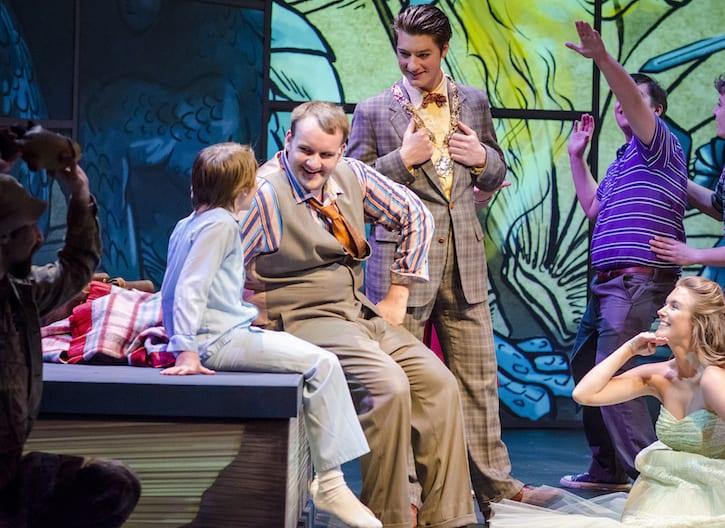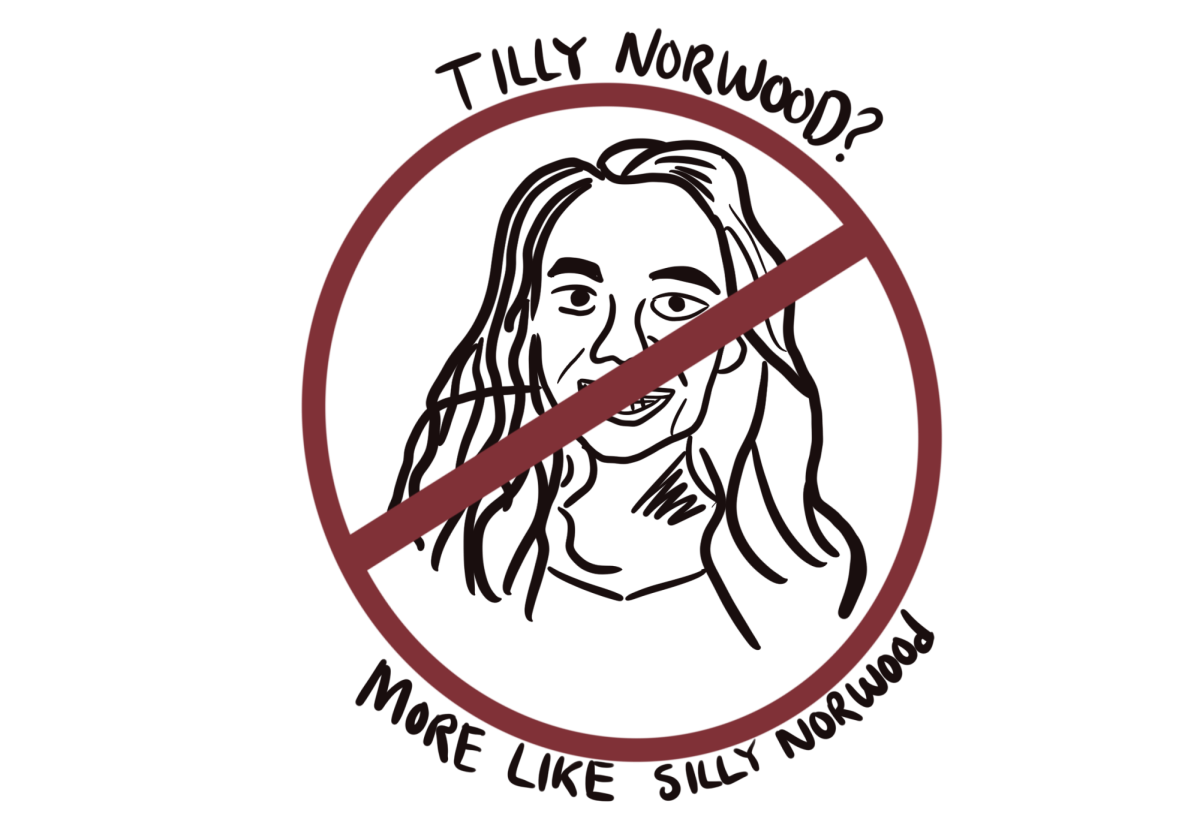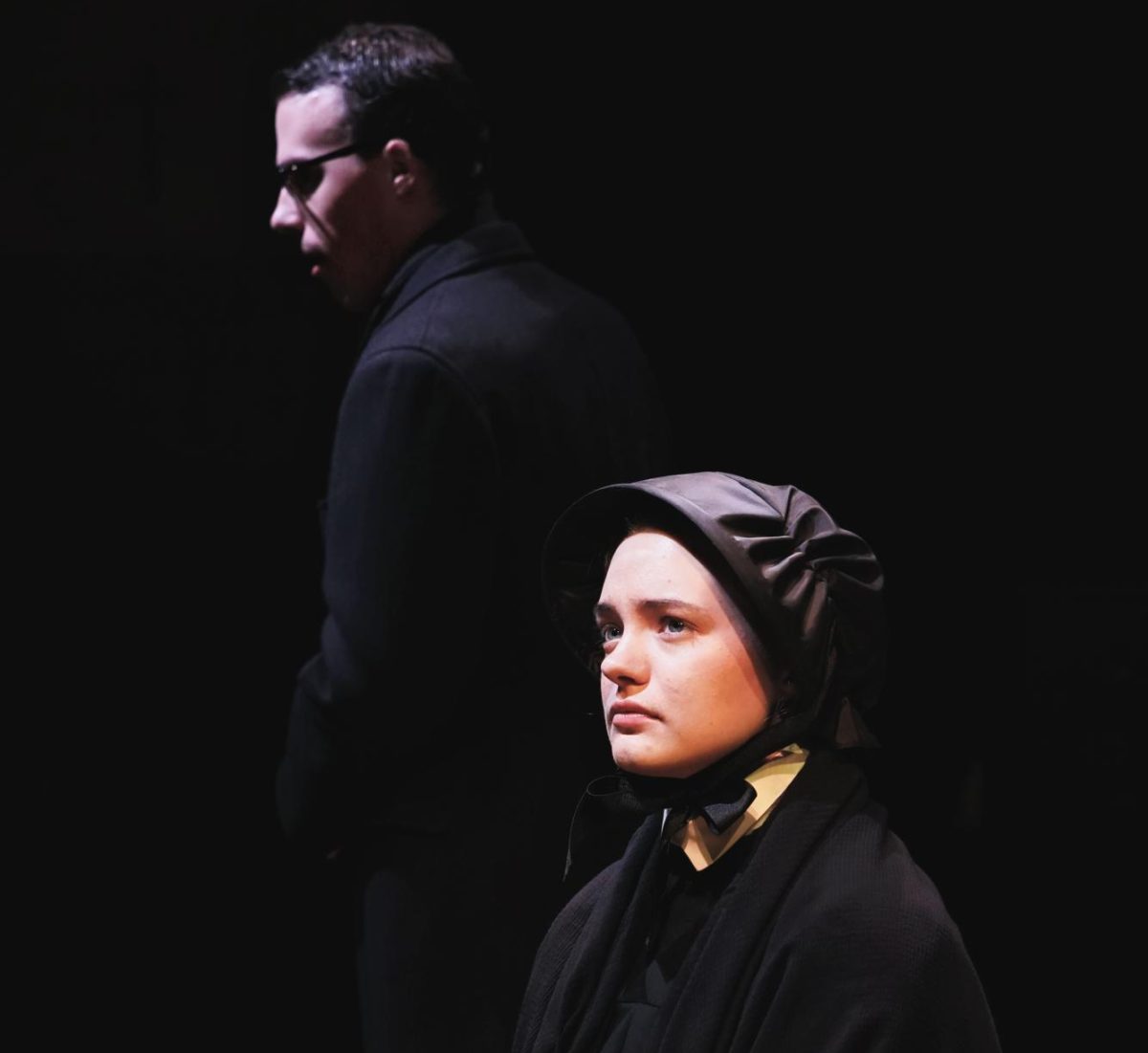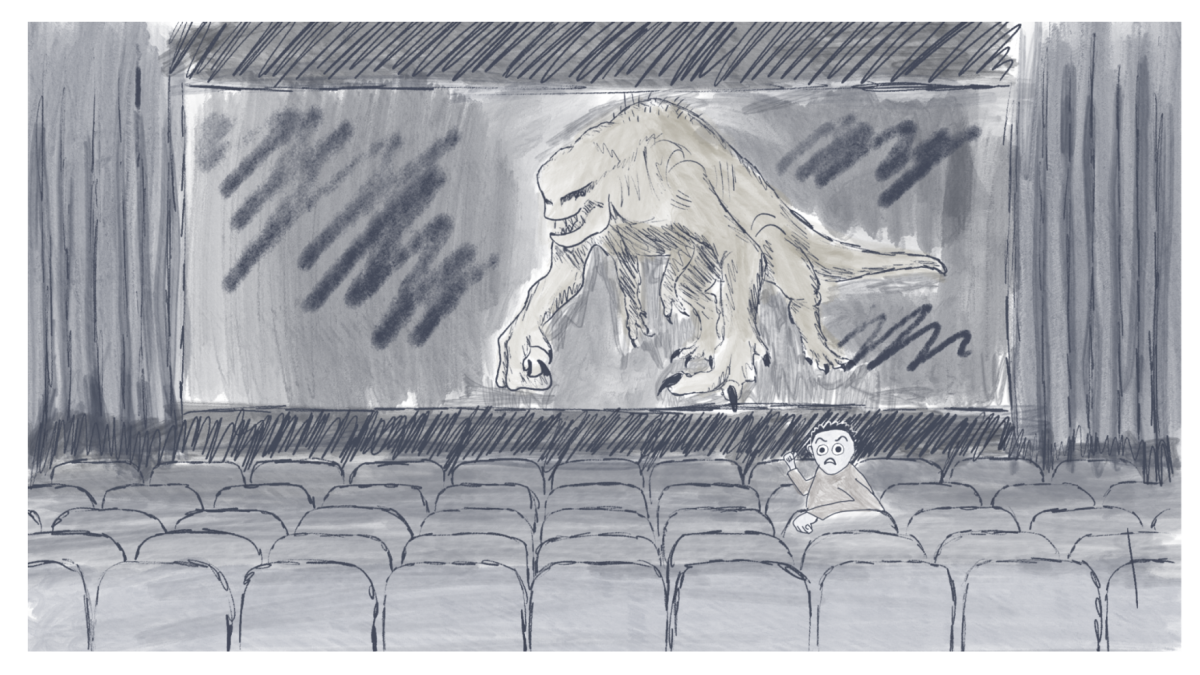Big Fish, the final production of the Theater Department season, ran five performances from Thursday, April 9 to Sunday, April 12. Every single show was sold out.
The show is a musical adaptation of the 1998 novel by Daniel Wallace and the 2003 film written by John August, both of the same name. Big Fish tells the story of Edward Bloom, a man who tells fantastical stories and his son, Will Bloom, who strives to decipher the truth of his father’s life from these stories.
Both young and old Edward were played by David Gottfried ’15, but the role of Will was split between Memo Rodriguez ’16 as adult Will and Peter Lindell, a child actor, as young Will. Noelle McCabe ’15 played Edward’s wife, Sandra, and Christine Menge ’18 played Will’s wife, Josephine.
The stars were supported by a zany cast of colorful characters ranging from an annoying small-town rival Max McKune ’18 to a fortune-telling witch Wenie Lado ’16 to a circus ringleader with lycanthropic tendencies Duncan Tuomi ’16.
The songs were all fantastic. Big company numbers such as the thematic “Be the Hero” and the second act opener “Red, White and True” were fun and full of energy.
These peppy pieces were then contrasted with smaller-scale, heart-breaking songs, like the ballad “I Don’t Need a Roof,” sung by McCabe. One of the clear audience favorites, though, was “The Witch,” led by Lado and accompanied by seven actresses of the ensemble in a well-choreographed, groovy tune that had more than one audience member bobbing along in their seat.
One of the most striking features of the performance was the use of projections. Rather than requiring set changes, the stage was occupied by gigantic books with projection screens on the pages. This allowed the play’s settings to change swiftly and subtlety by transitioning through colorful illustrations by Erin Knadler ’15. Knadler’s wonderful illustrations matched the show’s tone, perfectly expressing the free-flowing magic of the story.
In Big Fish, the technical aspects added new dimensions to the production, feeling almost like another character.
Despite being an extraordinarily well-made play, Big Fish had some issues. First of all, although Gottfried put on a truly fantastic performance, his Southern accent was inconsistent over the course of the show. Secondly, while the music was great, the narrative had some issues: the first act dragged in between numbers, feeling as though the dialogue was there only to set up the next song.
From a technical viewpoint, the edges of the projections were slightly cut off for audience members seated in the far left of the auditorium. Lastly, in the final few scenes, it did become somewhat difficult to hear the actors over the audible sobbing of the audience, but it would be unfair to hold the playmakers responsible for that issue.
Big Fish was not only a wonderful show in and of itself, but it was also a fine compliment to the production of Dead Man’s Cell Phone that preceded it last month. Both shows dealt with themes of a fear of disconnect from life and from the world. Big Fish confronted this in a more familial sense, whereas Dead Man’s Cell Phone came at it from a societal perspective. I predict that in the next few years, this theme will only increase in prominence, relevance and importance in across many art mediums, but particularly in the theater.
A closing fun fact about the production: Gottfried actually broke two toes on stage opening night. In a scene where Edward Bloom falls out of a hospital bed, Gottfried failed to catch himself, causing the injury. He still endured through the rest of the performance and through the show’s entire run, even through footwork-heavy numbers like “The Alabama Stomp.”
Big Fish concludes the Theater Department’s 2014-2015 season. However, the department will be sponsoring the annual Quade One-Act Play Festival, featuring the work of the Intermediate Directing class at the end of the semester in Haugen Theater.
Photo Credit: ANDREW WILDER/MANITOU MESSENGER






